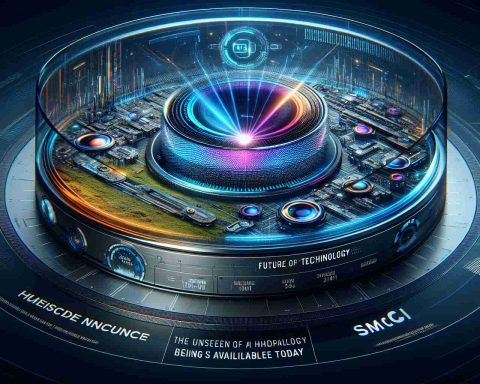In recent years, Nokia has largely been overlooked in the bustling smartphone market, yet recent movements in Nokia’s stock suggest that the tech giant might be embarking on a transformative journey with artificial intelligence at its helm. Once a dominant force in the mobile phone arena, Nokia now seems poised to integrate cutting-edge AI technologies that could redefine its industry standing.
Despite being outshined by competitors in the smartphone sector, Nokia’s strategic focus on marrying AI with telecommunications infrastructure may provide it with a unique edge. At the heart of this strategy lies Nokia’s commitment to leveraging AI to enhance 5G technology, optimise networks, and improve user experiences, forming the backbone of future smart city innovations.
Investors are taking notice. Recent reports indicate that Nokia is quietly investing in AI-driven solutions aimed at transforming networked systems into more efficient and autonomous entities. This shift is attracting attention as traditional technology sectors and emerging AI potentials converge.
Analysts suggest that for Nokia, the key might not be in competing head-to-head with established smartphone manufacturers but in redefining its niche. By enhancing the way devices connect, interoperate, and communicate, Nokia could capture new revenue streams from enterprises and spearhead a fresh wave of telecom solutions.
While it remains to be seen if Nokia’s stock will soar on the back of these developments, one thing is clear: with AI in its arsenal, Nokia is positioning itself for a future that looks beyond just smartphones. The next few years could determine if this gamble will pay off, offering a compelling narrative for investors seeking opportunities in the evolving tech landscape.
Nokia’s AI Ambitions: A New Era or a Risky Bet?
With Nokia’s renewed focus on artificial intelligence, conversations are intensifying about its potential to reshape the telecom industry. But what lies beyond the headlines? Here’s what you might not know about how Nokia’s strategy could affect the everyday lives of people and communities globally.
Possibilities of AI in Telecommunications: Nokia’s integration of AI into its telecommunications infrastructure could revolutionise network efficiency, a key advantage. Imagine smart cities with seamless connectivity, where transportation systems, utilities, and communication devices operate without interruptions. This can lead to improved urban life, better energy management, and enhanced public services.
Impact on Employment and Workforce: The rise of AI-driven networks may also affect job markets. As networks become more autonomous, the demand for traditional telecom roles might diminish, leading to job displacement. However, it creates new opportunities in AI management, data analysis, and network security domains, posing both a challenge and opportunity for workforce adaptation.
Advantages and Controversies: The advantage of AI-driven systems is clear: increased efficiency and reduced operational costs. But how does this play out for data privacy and security? AI in telecom could lead to concerns over data misuse and cyber threats, posing a significant disadvantage.
What should users and policymakers prepare for? The balance between innovation and ethical practices is essential. How will Nokia tackle these challenges? By emphasising transparency and robust security protocols, Nokia can soothe public apprehensions.
For more on telecommunications advancement, you can explore sites like Nokia or GSMA for broader industry insights.




























